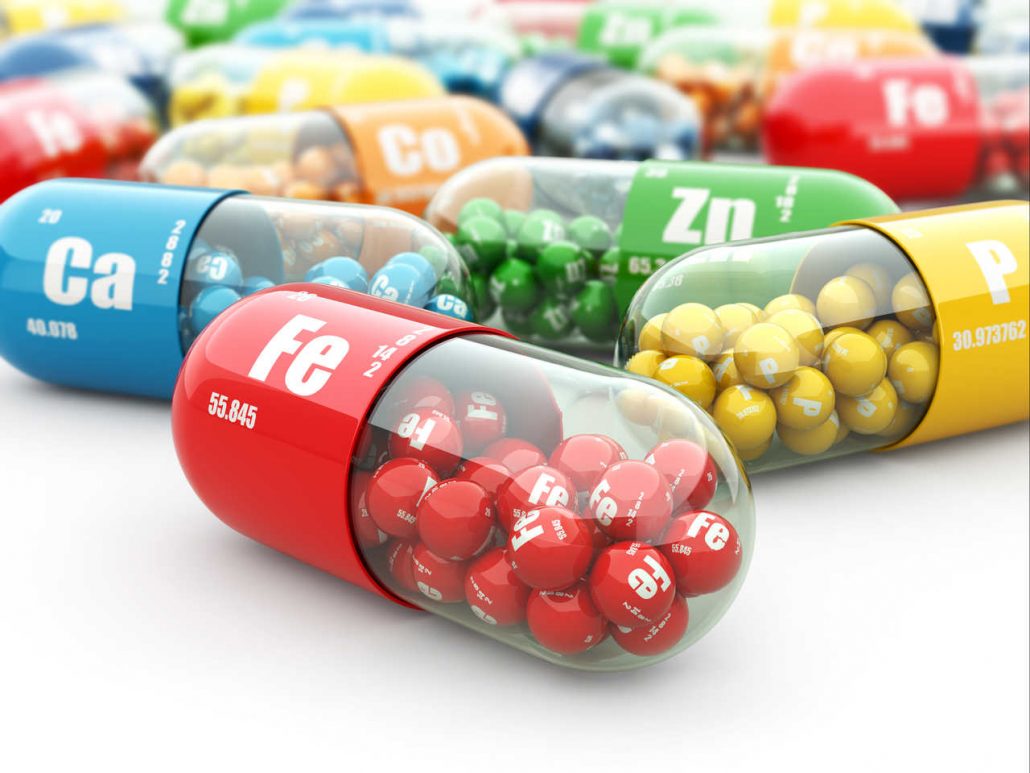
A 10-year observation study of over 30,000 people has found that some vitamins and minerals can help you avoid cardiovascular disease, but only if your body gets your beneficial nutrients from food, not from food supplements.
The study, published this week in the Annals of Internal Medicine, is just another one that has found that the use of supplemental vitamins and minerals, either singly or in multivitamins, provides no obvious benefits in terms of reducing the risk of death in general or death from cardiovascular disease and cancer. In simple terms, swallowing pills cannot take the place of healthy eating – an unpretentious study that is unlikely to please the hypertrophied $ 700 billion ($ 30 billion) food supplements industry.
In addition, the study found not only a lack of user health benefits. It also found potential damage. Taking high doses of calcium (1,000 mg or more per day) from supplements, but not from food, has been associated with higher risks of cancer deaths – the study says. Similarly, people taking vitamin D in supplements who have no vitamin D deficiency are at a higher risk of dying from all statistically observed causes, including cancer deaths.
It is not clear from this observational study why the same vitamins and minerals had different effects based on whether they were, say, chewed in lettuce or swallowed in a solid packaged capsule. However, it is likely that our body is fine-tuned by evolution to absorb and use micronutrients at the levels and proportions found in food.
The authors of the study – a team of nutrition experts led by researchers at Tufts University – note that:
“People consume foods and nutrients that are highly correlated. Complex interactions between nutrients are likely to play a more significant role in determining health outcomes than individual nutrients. ”
Take the case of calcium, for example. Earlier research has shown that regular mega-doses of dietary calcium – perhaps from high-quality ice creams – can cause the intestines to reduce the amount of mineral they absorb, leading to higher levels of calcium in the urine (the body more excreted) and lower calcium levels in the body. In fact, it is very difficult, if not impossible, to get too much calcium from the food itself. Regular swallowing of large amounts of calcium in a strong tablet, on the other hand, does not appear to have the same effect on intestinal absorption, leading to increased levels of circulating calcium and potential damage such as constipation and increased risk of kidney stones.
More than half of all adults in the US say they use food supplements. 10% of Americans list four or more supplements per day. Therefore, it is important to understand the benefits and risks they represent.
More Findings
The authors of the new study also looked at data from the National Health and Nutrition Examination Survey, which took place between 1999 and 2010 from 30,899 people. More than 27,000 of these participants have provided information about the supplements they have taken as well as the food they have recently eaten. The survey also included demographic and other health data, including whether people smoked, drunk, trained, or had severe medical conditions such as cancer and diabetes. Participants provided their information to trained interviewers who examined participants in their homes and by telephone. The authors of the study then linked health records to deaths with participants during the reporting period. The study captured the deaths of 3,613 participants.
Like the general population, more than half of the study participants reported using dietary supplements. Nearly 40% took multivitamins. The most common individual supplements were vitamins C, D and E, as well as calcium and magnesium.
Researchers, based on supplementary and food reports from each participant, estimated how much each of the major micronutrients a participant received each day. The researchers divided the estimates by source (food versus supplement) and recorded whether they were below the recommended values, at target values, or excessive.
At first glance, it seemed that those who are taking food supplements are doing well – showing a reduced risk of death because of all the causes of the survey. But this association disappeared when researchers compared demographic and health data. “Our results and results suggest that those taking supplements are people with higher levels of education and income and healthier lifestyles overall (eg, better diet, higher levels of physical activity, non-smokers or abstainers and healthy body weight) than non-users” , the authors of the study noted. Thus, “the apparent correlation between use of supplements and lower mortality can reflect a mix of higher socio-economic status and healthy lifestyle factors known to reduce mortality.”
When scientists selected the effects of individual micronutrients, they found that adequate vitamin K and magnesium intake was associated with a lower risk of death due to all causes. Also, vitamin A, vitamin K, zinc and copper were associated with a lower risk of cardiovascular death. But these benefits were limited to the intake of these substances only from food – not from supplements.
Before the reader might be tempted to try to extend his diet to foods that are overflowing with these vitamins and minerals, the authors stress caution. As mentioned earlier, scientists suspect that nutrient interactions and nutrients play a role in health outcomes. “Our knowledge of individual nutrients should therefore be considered as preliminary and interpreted with caution,” the researchers conclude.
The study also has several limitations, including relying on people to remember the foods they enjoy (and honestly report them). It is also an observational study that is only able to detect correlations, does not prove that nutrients cause any observed damage or benefits.
Researchers (as always) call for further research into the epidemic of the use of supplements. However, it can be concluded from these data that “although adequate nutrient intake from food may contribute to reducing the risk of death, excessive supplemental intake may increase mortality.”
Note: A similarly focused study, but conducted at a very different scientific level, has found surprising facts for about 20 years ago: Whenever the human body could choose between taking vitamins from pills or natural food after ingestion, it would preferentially absorb natural vitamins. natural diet. In these experiments, the two groups of vitamins were labeled with radioisotopes. The results did not change even when they changed the tagging. That is. if a person has taken artificial vitamins in the pill and, at the same time, is natural in the diet, the body has always chosen the natural form of vitamins for all the persons examined and has taken out the artificial vitamins from the body. Only in the case of a lack of natural vitamins did the body take on vitamins artificial. It is an unexplained mystery to scientists today, as they emphasize: “Natural and artificial vitamins have the same chemical composition”.
Source: Annals of Internal Medicine


